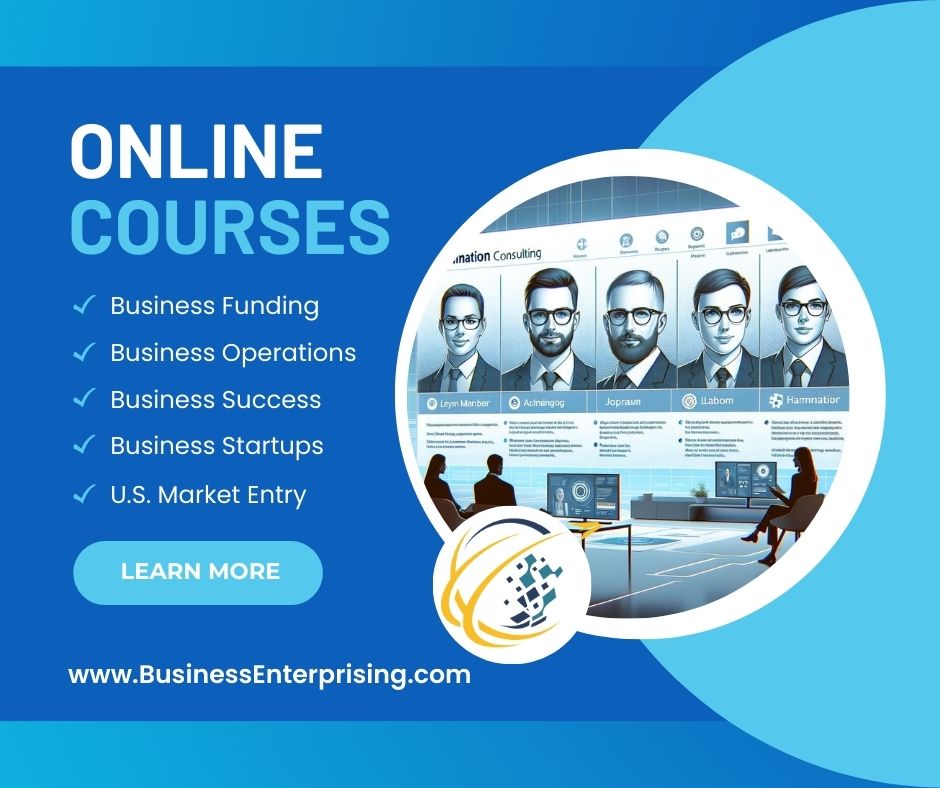 Understanding and implementing strategies for sustainable business growth is essential for any company aiming to thrive long-term. This article explores various approaches that can help your business not only grow but also maintain its growth in a healthy, sustainable way. From developing scalable business models and fostering innovation to building strong customer relationships and leveraging technology, we’ll cover the fundamentals that underpin lasting success. Additionally, we’ll discuss the importance of incorporating sustainability and corporate responsibility into your business practices, which can significantly enhance your company’s reputation and customer loyalty. Below you’ll learn how these strategies can transform your business approach and lead to substantial and sustained growth.
Understanding and implementing strategies for sustainable business growth is essential for any company aiming to thrive long-term. This article explores various approaches that can help your business not only grow but also maintain its growth in a healthy, sustainable way. From developing scalable business models and fostering innovation to building strong customer relationships and leveraging technology, we’ll cover the fundamentals that underpin lasting success. Additionally, we’ll discuss the importance of incorporating sustainability and corporate responsibility into your business practices, which can significantly enhance your company’s reputation and customer loyalty. Below you’ll learn how these strategies can transform your business approach and lead to substantial and sustained growth.
Developing a Scalable Business Model
Developing a scalable business model is fundamental among strategies for sustainable business growth. It ensures that as your business expands, the foundational systems and processes can adapt and grow without compromising service quality or operational efficiency. This adaptability is key to sustaining long-term success.
Initially, you might start with a simple model tailored to a small customer base. However, as your market presence grows, the complexity of managing larger customer volumes and more diverse needs increases. Here, scalability means having a flexible structure that can handle growth without needing a complete overhaul.
For instance, consider how technology can facilitate scalability. Automated systems for customer relationship management and supply chain logistics can scale more easily than manual processes. As you refine your business model, integrating advanced technologies can help manage increased demand seamlessly.
Moreover, a scalable business model should allow you to expand into new markets and add product lines without significant friction. This might involve modular aspects that can be adjusted for different markets or expanded capacity in service delivery.
Remember, the goal is to grow at a pace that your business can sustain. By focusing on a scalable model, you set up a foundation that supports expanded operations and prevents overextension. This approach not only enhances your ability to grow but also solidifies your market position over time.
Innovation and Adaptation
Continuous innovation and adaptation are crucial strategies for sustainable business growth. In today’s fast-paced market, staying competitive means regularly updating your products, services, and business processes. This dynamism is not just about keeping pace with technological advancements but also about responding to changing consumer preferences and emerging market trends.
For your business to thrive, you should foster a culture of innovation. This involves encouraging your team to think creatively and challenge the status quo. By doing so, you can identify opportunities for improvement and innovation that may not be immediately apparent. Moreover, engaging with your customers to gain feedback can provide direct insights into how your products or services could evolve.
Adaptation is equally important. It requires a proactive approach to the external business environment. This includes regulatory changes, technological developments, and shifts in consumer behavior. For example, the rise of mobile commerce has forced many retailers to adapt their e-commerce strategies to be mobile-friendly.
Implementing adaptive measures can sometimes mean overhauling existing processes or rethinking your business model. While this can be challenging, the ability to pivot and adapt is often what separates successful businesses from those that falter. As part of your strategies for sustainable business growth, consider how flexible your business is and what steps you can take to increase its responsiveness to change.
Ultimately, embedding innovation and adaptation into your business practices not only enhances competitiveness but also builds resilience. This prepares your business to face future challenges more effectively and seize opportunities that arise from change. Remember, a business that continually evolves is more likely to lead the market and maintain relevance with its customers.
Building Strong Customer Relationships
Building strong customer relationships is central to strategies for sustainable business growth. Deepening customer engagement and loyalty can transform your business’s relationship with its audience, turning casual buyers into lifelong supporters. Personalization, improved customer service, and building a community are pivotal in achieving this goal.
Personalization is more than just addressing a customer by their name. It’s about tailoring the shopping experience to fit individual needs and preferences, which can significantly enhance satisfaction. By leveraging data analytics, you can understand purchasing behaviors and preferences to customize offers and communications effectively. This attention to detail shows customers that their unique needs are recognized and valued.
Enhanced customer service also plays a critical role. This means not only responding quickly to inquiries and resolving issues but also proactively reaching out to customers with information that may interest them. Training your customer service team to go above and beyond can make a huge difference in customer retention and satisfaction.
Furthermore, building a community around your brand can create a sense of belonging among your customers. This can be achieved through active social media engagement, loyalty programs, and events that bring users together. Encouraging customers to interact with each other and share their experiences can amplify their connection to your brand.
These efforts in personalization, customer service, and community building help ensure that your customers feel valued and connected to your brand. As you implement these strategies, you’ll not only see an increase in customer loyalty but also in recommendations and positive reviews, which are invaluable for sustainable growth.
Sustainability and Corporate Responsibility
Integrating sustainable practices and corporate social responsibility (CSR) into your business model is a powerful strategy for sustainable business growth. By adopting these practices, you enhance your company’s reputation and appeal to a customer base that values ethical considerations in their purchasing decisions.
Implementing sustainable practices can range from reducing waste and lowering carbon emissions to using eco-friendly materials and ensuring fair labor practices in your supply chain. These actions not only help protect the environment but also improve your operational efficiency and can reduce costs in the long run.
Corporate social responsibility can further strengthen your brand’s image and customer loyalty. Activities like community involvement, charitable giving, and ethical governance resonate with consumers and employees alike, creating a positive feedback loop that benefits both the company and the community it serves.
Moreover, transparency in your sustainability and CSR initiatives builds trust with your customers. When you openly communicate your efforts and the impact they have, you allow customers to see the direct benefits of their support for your business. This openness is crucial as it differentiates your brand in a competitive market.
By embedding sustainability and responsibility into your core business strategies, you not only do good; you also position your business to attract and retain a loyal, engaged customer base. These commitments to ethical practices are becoming prerequisites for enduring success in the modern business landscape.
Leveraging Technology for Efficiency
Leveraging technology for efficiency is a key pillar among strategies for sustainable business growth. Today’s digital tools and technologies enable businesses to streamline operations, reduce costs, and make smarter, data-driven decisions.
Introducing automation into your workflows can significantly enhance efficiency. For example, using software to automate routine tasks like data entry, customer billing, or inventory management not only speeds up these processes but also minimizes the risk of human error. This allows your staff to focus on more complex, value-adding activities.
Cloud computing is another technology that can reduce IT costs and improve accessibility. By using cloud-based applications and storage, you can ensure that your team has access to necessary data and tools from anywhere, facilitating remote work and flexible working arrangements. This scalability also means you can adjust your usage based on business needs without a major upfront investment in hardware.
Moreover, advanced analytics and business intelligence tools can transform how you make decisions. By analyzing large amounts of data, these tools can provide insights into customer behavior, market trends, and operational performance. This enables you to anticipate market changes, understand customer preferences, and optimize your operations more effectively.
By integrating these technologies, you not only improve operational efficiency but also enhance your ability to respond to changing market conditions quickly. This adaptability is crucial for maintaining competitive advantage and achieving long-term growth. Remember, the goal is to use technology not just to do the same things better, but to do better things.
Employee Development and Retention
Investing in employee development and retention is critical among strategies for sustainable business growth. When you commit to enhancing the skills and satisfaction of your workforce, you not only improve productivity but also foster a loyal team.
Training and development opportunities are key to ensuring your employees are not only competent but also progressing in their careers. This might involve formal education programs, workshops, or access to courses related to their field. Such investments show your commitment to their growth and increase their value to your company.
Moreover, creating a positive work environment is vital. This includes everything from the physical workspace to the cultural atmosphere. Employees need a safe, inviting place where they feel supported and valued. Promoting open communication and recognizing achievements can contribute significantly to job satisfaction and morale.
Also, providing clear career paths and promotion opportunities can greatly enhance retention. Employees who see a future in your company are more likely to stay committed. This stability can save you significant resources on hiring and training new staff.
By prioritizing these areas, you cultivate a motivated and effective workforce. This not only drives better business outcomes but also supports a culture of continuous improvement and innovation. In the end, the success of your business heavily depends on the people behind it.
Conclusion
In summary, implementing effective strategies for sustainable business growth involves more than just pursuing short-term gains. It requires a holistic approach that encompasses refining your business model, fostering innovation, and deepening customer relationships. Additionally, integrating sustainability into your practices and leveraging technology enhances both efficiency and reputation. Most importantly, investing in your employees ensures that your team remains motivated and effective, which is vital for the long-term health of your business. By focusing on these areas, you set the foundation for a business that not only grows but also thrives in today’s dynamic market environment. Remember, sustainable growth is a continuous journey that benefits from constant evaluation and adaptation.


